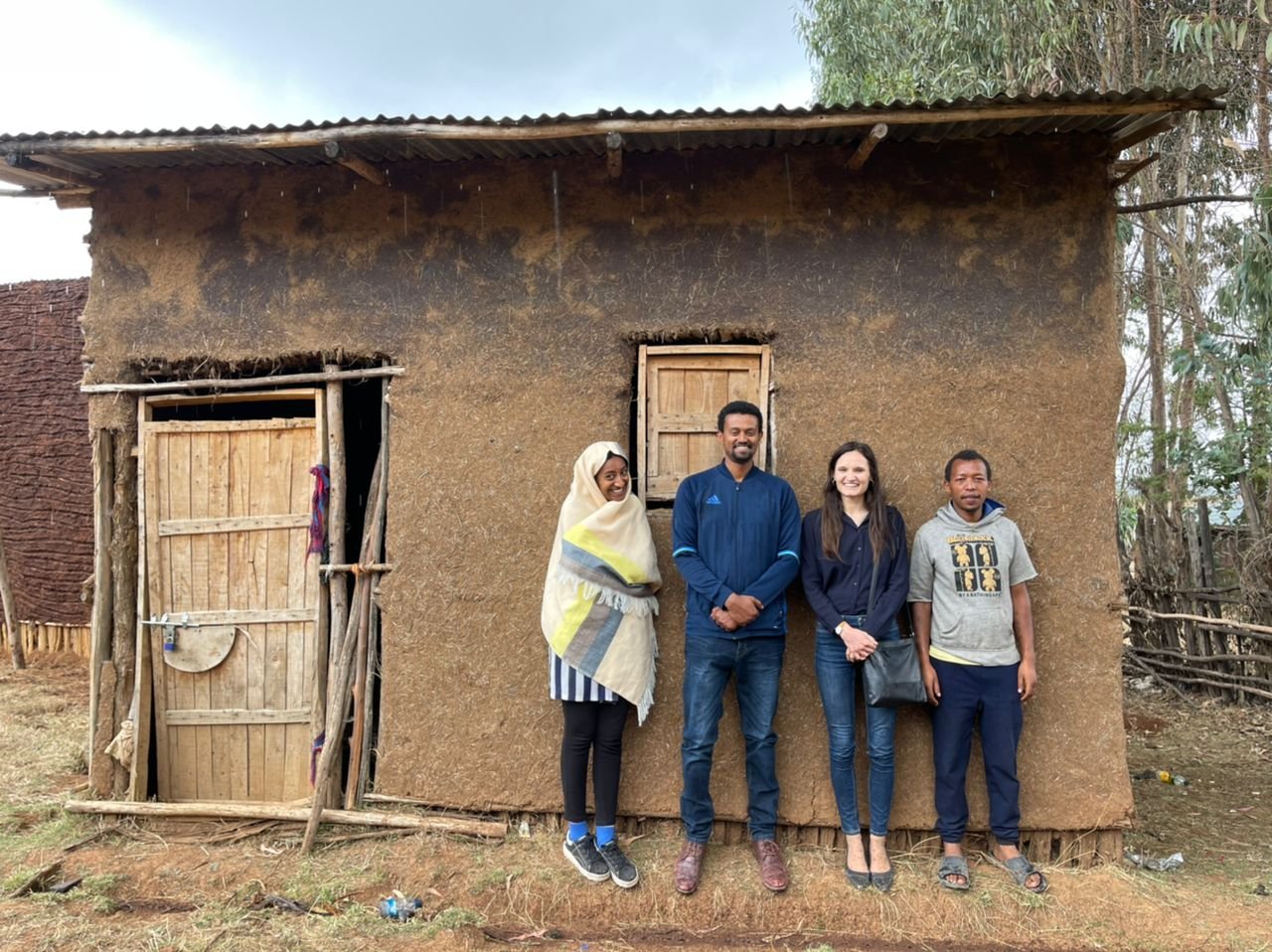Romina Istratii – Lecturer, School of History, Religions and Philosophies

We spoke to Dr Romina Istratii, UKRI Future Leaders Fellow at the School of History, Religions and Philosophies at SOAS about her life and her work.
Tell us about your background and your journey to SOAS
“My journey is at the core of everything because it really informed what I do today and why I do it. Briefly, I am a child of immigrants raised in Greece; my parents were born in Moldova, which they left at the collapse of the Soviet Union.
I worked very hard as a student and in 2008 enrolled on a scholarship at Bates College in the US. While a rewarding experience, there I also encountered the dominance of western knowledge paradigms within education. As a student, I worked as a research assistant for an economist at Bates, contributing to a source book on development in Africa. I was researching agricultural development and I became familiarised with the gender and development paradigm, which is my current work’s focus. The literature I read offered a simplistic picture about African communities as gender unequal, patriarchal, and women as without agency. These were generalising patterns and descriptions that I felt uncomfortable with. I felt that there was something more to them. I asked myself ‘where are the voices of the male and female farmers? How would they explain their own realities?’
I went on to win a Thomas J Watson Fellowship, which allows select US graduates to pursue an independent research project for a year. I was passionate about going to Africa to discover what was left out of the books I read. I had never been to the continent and I wanted to understand the lived realities of diverse communities, so I went to Ghana, Ethiopia, Rwanda and Tanzania.
I passed by over 60 villages in the year and I became exposed to the livelihoods of both female and male farmers, sometimes being hosted in their homes. The picture was nuanced, complex, and impossible to generalise. I also experienced the importance of faith and religious belief systems in people's attitudes and day-to-day practises.
International development had historically followed a secular paradigm (despite a recent turn to ‘religion’), which reflects Western societies’ perception of religion and its role in society. I didn't know at the time where this bias came from and why it was there, but I saw clearly the disregard for people’s religious worldviews and sensibilities.
In parallel, I had my own journey with my faith. I was born within Russian Orthodoxy, but was raised in the Greek Orthodox Church, though it was more cultural than anything else. As I went through Africa, I discovered the importance of my faith to me. This created connections with the people I met.
I thought that the imposition of Western knowledge and representations of the world were colonising, neo-colonial, but I didn't call it that at the time. I was not aware yet about cognitive or epistemological colonialism, but I felt that that was the case and I was looking for the language to express it.
I later received a scholarship to study an MA in gender development at IDS. Much feminist critique is about overcoming normatives, but the way gender theory was taught reflected a western understanding, standard and ideal, and there was little reflexivity of gender diversity in the world in the teaching I received.
My Master's was based on fieldwork in Senegal with a Sufi Muslim community. That work reinforced my belief that more needed to be done to bridge theology and religious beliefs with gender analysis, so that the design of gender-sensitive interventions might respond better to gender inequalities in traditional religious societies.
Afterwards, I decided to pursue a PhD to deconstruct the western theoretical frameworks that prevailed in much gender and development scholarship and practice and to suggest a different approach - not just to criticise, but actually to construct a different approach and to demonstrate to development actors that it can be done.
I was interested in northern Ethiopia as a case study because of the Ethiopian Orthodox tradition that I felt more connected to because of my own Orthodox background. Data suggested that gender inequality and domestic violence were extensive phenomena and reported positive attitudes in favour of some abusive behaviours towards women, which seemed strange for an Orthodox society presumably following a gender equal theology.
I used this as a case study to develop my theoretical critique, which became my first monograph. This was a deconstruction of theoretical constructs used in gender and development and their application in the analysis of gender-based violence. The books also proposed an alternative way to start to decolonise anthropological methods and conduct more reflexive, self-aware research.
As a Master’s student I designed an approach that placed my research participants at the centre of cultural analysis. I held group discussions with participants where I let them interpret the data I collected to help minimise the bias of my own interpretation. I further developed this approach in my PhD, completed at SOAS. I conducted a year-long fieldwork in Ethiopia, spending six months in two village communities. This allowed me to build trust with the communities, but also with monasteries, theological colleges and the Ethiopian Orthodox Church, enabling long-term collaboration.”
How did your current project come about?
“After I came back, I tried to secure funding for a social impact project - I wasn’t looking for a typical research grant because I didn't want to do only research, but to translate my research into practical use for the communities I worked with. I wanted to design interventions informed by the research, thus placing the study of local realities at the heart of a gender and development model.
In 2019, I was working as a research officer at SOAS in the context of which I came across the UKRI Future Leaders Fellowship, which was the first scheme that seemed to attempt to bridge research and innovation. To be able to apply, my work in Ethiopia needed to be made relevant to the UK however. I had already started to observe that the UK, an increasingly multi-ethnic, multi-religious and multicultural society, still faced challenges adapting its mainstream domestic violence services provision model to religious diversity.
I thus created project dldl/ድልድል, which means ‘bridge’ in Tigrigna, to bridge gender and development, public health and religious studies to achieve more integrated faith-sensitive responses to domestic violence in Ethiopia and the UK. The project seeks to generate impact, such as social or attitudinal change, as well as reinforce positive practices in the communities of work.
By working both in Ethiopia and the UK, we would develop a more transboundary understanding of domestic violence in the two countries and their migrant communities. Additionally, we would be actively learning from Ethiopia in an effort to reverse the usual knowledge transfer from the west to the rest.
As the Principal Investigator I designed the project, but each part of the project is implemented with local partners in Ethiopia and the UK, who co-produce with me the project outputs and ensure its continuous use in the respective communities and organisations.
Despite a war that broke out in northern Ethiopia and the Covid-19 pandemic when we started, the project has become well-known in Ethiopia and has established many partnerships in Ethiopia and the UK.
In the first two years of the project we also completed a programme that trained 155 Ethiopian Orthodox clergy on gender and marriage theology, the country’s legal framework on domestic violence, safeguarding standards in supporting survivors, and the psychology of abuse so that they are more prepared to respond to domestic violence in their communities. We are currently developing the first known guidelines for faith-sensitive counselling together with an Ethiopian partner organisation that provides counselling to married couples and individuals with mental health issues.
We have also created a documentary on the research that was completed in Tigray. The script is a combination of the different stories of domestic violence that were imparted to me in previous research, which show how religious and cultural factors play into domestic violence experiences and help seeking. Its purpose is to educate the public and foster a more nuanced understanding of the interactions between religious beliefs and domestic violence, as well as improve awareness among clergy. Like much of our work, the film will be made available in four languages: Amharic, Tigrigna, Afaan Oromo, and English.
In Ethiopia, I also worked with a local artist who helped me to draw different domestic violence situations as they were described to me in research. Another local partner organisation, EMIRTA, helped us to conduct research with men where the domestic violence scenes were used to elicit reactions from the participants, as well as help them to envision deterrence mechanisms if they found themselves in similar situations.
Having returned back to the UK in year three of the project, we are working with the Bristol Medical School and the midwifery department at Sheffield University to conduct a sector-wide survey with domestic violence providers to understand how they engage with their clients’ religious beliefs and spiritual experiences, what the challenges might be, and how religio-cultural sensitive responses might be better effected.
Project dldl/ድልድል is wide ranging. It is not limited to just Ethiopian Orthodox communities or Christian traditions, we work with all religious groups. The project has multiple layers, programmes and aims, not just to decolonise research but to reconceptualise the way we work with partners in the Global South, to think about how we undertake interventions in international development that are community grounded, ethical and human-centred.
It has been very challenging to cater to the sensibilities of the different stakeholders the project works with, and I could probably be doing something easier, but I had to follow my vision. I know that many researchers are discouraged by competitive funding structures and processes, but I would strongly argue that one needs to trust one’s instinct and apply when they feel ready. Even if it does not work the first time around, it will be a stepping stone and an opportunity to expand one’s vision in new directions.”
“I could probably be doing something easier, but I had to follow my vision.”
Features


